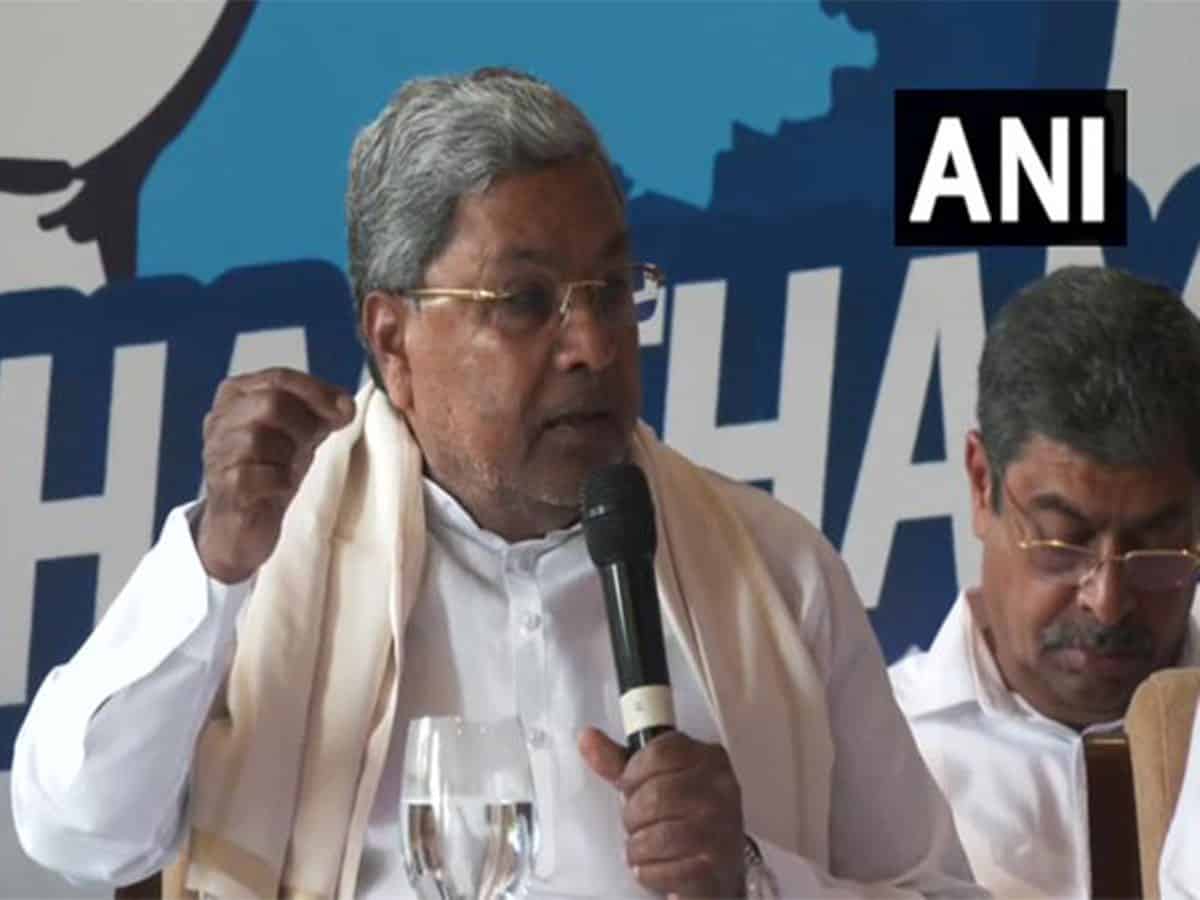
Bengaluru: Karnataka Chief Minister Siddaramaiah on Thursday stated that in a shocking revelation, BVR Subrahmanyam, CEO of NITI Aayog, has exposed the Narendra Modi Government’s hidden agenda in manipulating the financial autonomy of Indian states.
In a press release, Siddaramaiah stated, an article from Al Jazeera reveals the deep-seated issues plaguing the federal structure under the current administration, pointing towards a systematic strain on state finances and autonomy.
“We had always been raising this injustice but blind MPs of BJP were truly blind. Hope they wake up at the earliest,” he said and added that the implications of these actions were far-reaching, particularly for states like Karnataka, which have long voiced their struggles against such injustices.
“The Modi Government’s attempt to lower the states’ tax share from 42 per cent to 32 per cent and its subsequent concealment of this failed attempt in Parliament, where Modi spoke of empowering states, only adds to the narrative of duplicity. Since 2014, Prime Minister Narendra Modi has been involved in covert negotiations with the Finance Commission of India, aiming to significantly cut funds allocated to states. This move, resisted by the independent constitutional body, reveals a stark contrast between Modi’s public promises and his actual policies,” he explained.
“The revelation that the Modi Government had to hastily rewrite its maiden full budget in 48 hours to compensate for its failed strategy to retain a larger share of central taxes, exposes a two-faced approach to governance,” Siddaramaiah stated.
“BVR Subrahmanyam’s account of the rushed budget preparation, which resulted in severe cuts to crucial welfare programs, paints a grim picture of the government’s priorities. The halving of allocations for the Ministry of Women and Child Development, from Rs 36,000 crore to Rs 18,000 crore, is a stark example of how policy shifts at the central level can adversely affect the most vulnerable sections of society,” Siddaramaiah said.
“The budget also saw an 18.4 per cent cut in allocation for school education from the previous year,” he maintained.
He said that the government’s reliance on off-budget borrowing, as highlighted by BVR Subrahmanyam, further obscures the true state of federal finances and this practice, although keeping loans out of official records, ultimately burdens the government with repayment responsibilities.
Such financial manoeuvres contribute to a lack of transparency, undermining the principles of responsible governance, he said.
“A critical aspect highlighted in the fiscal narrative of India involves the 2022 report by the country’s Comptroller and Auditor General. This report laid bare significant deficiencies in the federal government’s financial disclosures. Notably, it revealed the non-disclosure of over Rs 1.69 lakh crore raised by various government-owned entities,” Siddaramaiah explained.
“BVR Subrahmanyam’s revelations indicate the BJP-led Central Government’s involvement in a financial misconduct case in Jammu and Kashmir. The administration allegedly submitted a false Utilisation Certificate, leading to the wrongful release of funds for infrastructure projects,” he stated.
“This incident, under the direct control of the BJP, raises questions about the party’s governance ethics and commitment to transparency. The misuse of funds in a sensitive region like Jammu and Kashmir suggests potential exploitation under the guise of empowerment. Was this financial irregularity a motive for the BJP’s direct control over Jammu and Kashmir, essentially looting in the name of empowerment?” Siddaramaiah questioned.
“The steady increase in the collection of cesses and surcharges, which are not shared with states, has emerged as a tactic to deprive states like Karnataka of their rightful share of revenues. This approach, as outlined by Malini Chakravarti of the Centre for Budget and Governance Accountability, demonstrates a calculated strategy to increase the central government’s share at the expense of state finances,” Siddaramaiah charged.
“The BJP Government’s financial tactics have led to a significant increase in the share of cesses and surcharges, from 10.4 per cent of total taxes in 2011-12 to 18.4 per cent by 2021-22,” the CM maintained.
“The need for a transparent, fair, and equitable approach to financial governance in India’s federal structure has never been more pressing. It is time for the central government to align its actions with its promises, ensuring a just and equitable distribution of resources among all states,” he said.



